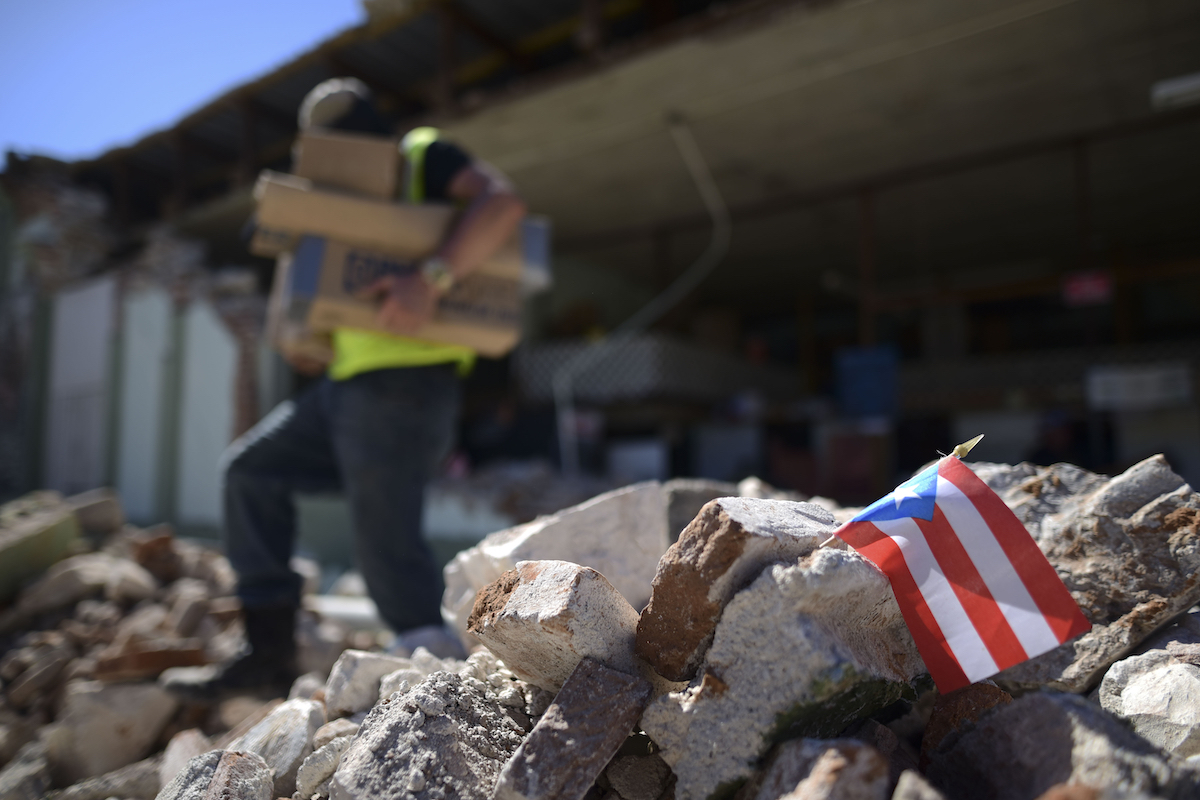

A Puerto Rican flag hangs within the rubble, after it was placed there where store owners and family help remove supplies from Ely Mer Mar hardware store, which partially collapsed after an earthquake struck Guánica, Puerto Rico, Tuesday, January 7, 2020. (AP Photo/Carlos Giusti)
On Monday morning, a media release published by the Center for Popular Democracy, which represents a nationwide network of community organizations, attributed the current response to Puerto Rico’s earthquakes to austerity measures and urged that resources be dedicated to local groups who are helping the thousands of people displaced by these natural disasters.
“From the Hurricanes of 2017 to the earthquakes of this year, Puerto Rico continues to grasp for recovery under decades of political mismanagement and budget cuts that have crippled its infrastructure and driven hundreds of thousands out. In order to ensure that Puerto Ricans achieve a just recovery, we must address the root of the issue,” Julio Lopez Varona, co-director of community dignity campaigns of the Center for Popular Democracy, said in the release. “The debt is a burden to the recovery of the island and it must be canceled to put the needs of the people first, not Wall Street. Long-term investments in infrastructure, including building schools and shelters up to code, solidifying the power and water grids, securing hospitals and roads, protecting pensions, and providing safe housing alternatives for low-income families, are just a few of the basic needs that should be immediately championed. Anything less is placing a band-aid on an open wound, expecting it to just go away.”
The release noted that the María Fund “plans to move rapid response funding to the network of social justice initiatives and grassroots community organizing groups that are supporting the people most impacted by the recent earthquakes that have devastated areas of the south of Puerto Rico.” It also linked to groups who are providing direct support or mobilizing efforts to reach impacted communities.
“The disastrous response of the local and federal governments are connected to an agenda that doesn’t center the lives of the people of Puerto Rico. This agenda has created a crippling debt, promoted budget cuts, poor maintenance of infrastructure, privatization, and displacement. The frontline groups who are stepping up at this moment know this, and the relief response they are organizing is part of a commitment to demanding structural changes for the long-term,” Xiomara Caro, Executive Director of the María Fund, said in the release.
According to the releaser, the rapid response funds will be made available to “the network of 49 organizations, many of which have already decided to step up and organize needs assessments, delivery of emergency supplies, service brigades to refugee camps, legal education, emotional support, and demanding equitable and systemic changes to improve their immediate and long-term reality, among other strategies.”
The complete list of organizations is listed here.


